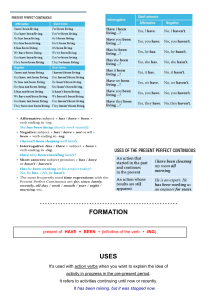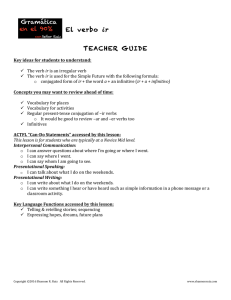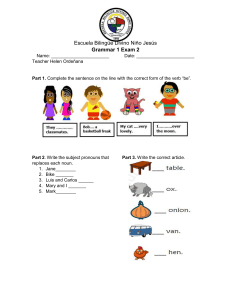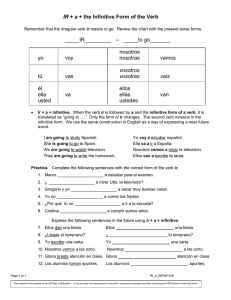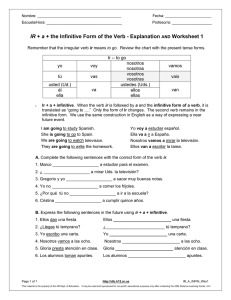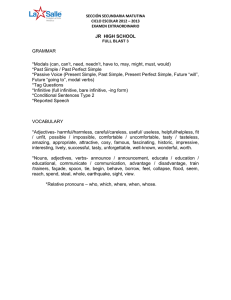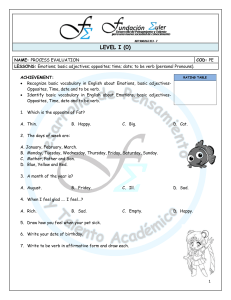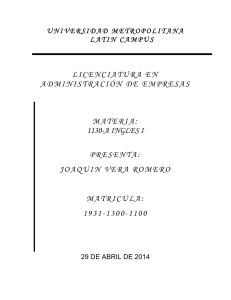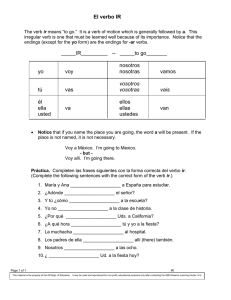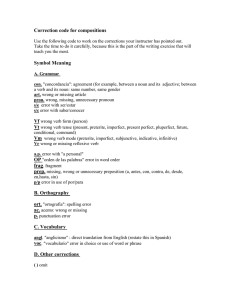El Tiempo Futuro Sencillo (Simple Future Tense)
Anuncio
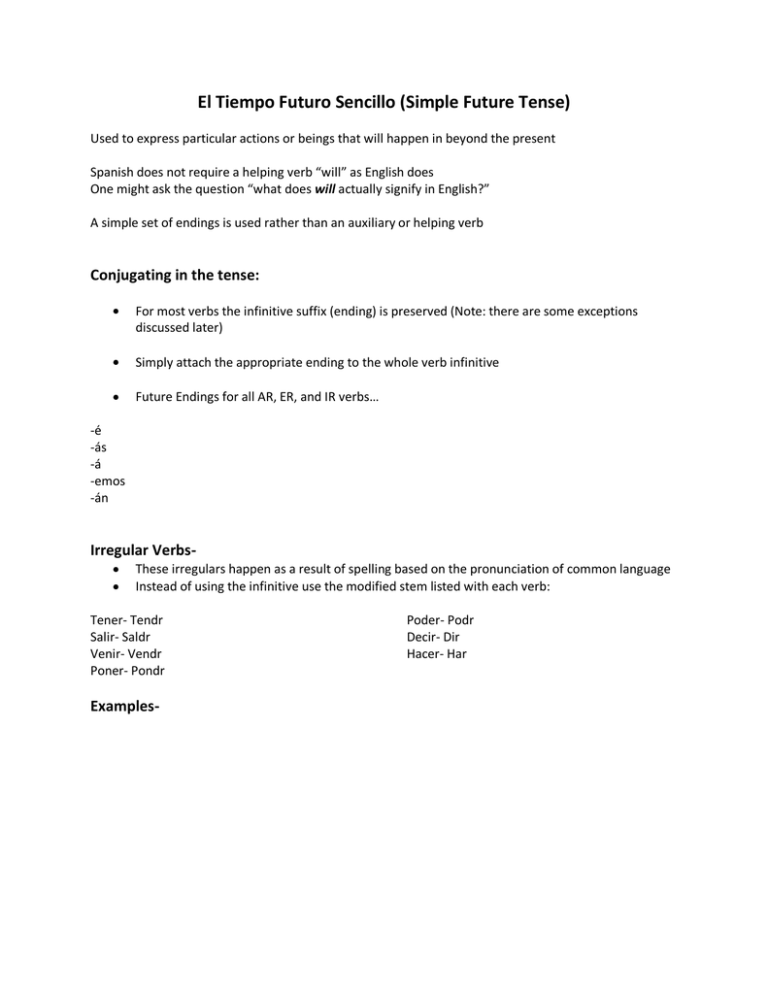
El Tiempo Futuro Sencillo (Simple Future Tense) Used to express particular actions or beings that will happen in beyond the present Spanish does not require a helping verb “will” as English does One might ask the question “what does will actually signify in English?” A simple set of endings is used rather than an auxiliary or helping verb Conjugating in the tense: For most verbs the infinitive suffix (ending) is preserved (Note: there are some exceptions discussed later) Simply attach the appropriate ending to the whole verb infinitive Future Endings for all AR, ER, and IR verbs… -é -ás -á -emos -án Irregular VerbsThese irregulars happen as a result of spelling based on the pronunciation of common language Instead of using the infinitive use the modified stem listed with each verb: Tener- Tendr Salir- Saldr Venir- Vendr Poner- Pondr Examples- Poder- Podr Decir- Dir Hacer- Har
